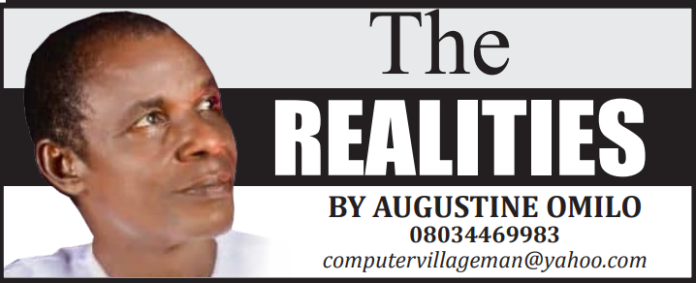From all indications, Nigeria appears to be losing the fight against poverty and poor governance. This is principally because the country has not been able to cut a niche for herself in economic management. Reliance on theories from the World Bank and the International Monetary Fund, IMF has failed to show signs of ability to offer sucour.
Before and during the first republic, the country’s economic mainstay was agriculture. This was followed by the post war era of General Yakubu Gowon’s leadership when petroleum products took the centre stage as the nation’s major sources of revenue. It equally became an international trade competition item.
It got to a point when the leadership of the country prided itself as overseeing the affairs of a nation with so much money but lacked ideas on how to spend it. Importation of all sorts of goods became rampant. Upcoming technology-inclined nations experimented the quality and acceptance of their products with Nigerians who allowed the country to be used as a dumping ground.
Farming was abandoned. Citizens even mocked countries like Thailand, China and South Chorea for producing substandard inexpensive goods. And suddenly, the gains from crude oil began to turn to pains. As things stand presently, the people are at loss as to whether to consider the 1956 discovery of oil in commercial quantity at Oloibiri as a curse or blessing to the country. The oil sector boomed and introduced into the economy, a monumental fraud system that has made it so easy to neglect other economic activity areas that has lifted the economies of nations such as Switzerland.
It became so easy for many well connected individuals to become stupendously rich through the sector with little or no proofs of value additions to oil production and sales.
Till date, there has been no explanation on the exact time subsidy was introduced into the industry and by how much. And yet the “removal” of same by President Bola Ahmed Tinubu has since thrown the entire nation into a state of economic dinosaur. Unemployment rate is rising.
Fraud is thriving and has become a sector of its own. People, especially politicians are often immensely rewarded for wrong reasons. Leaders are making themselves lords. The only hope left for the citizens has remained hope.
Meanwhile, it behooves the leaders of the country to begin to formulate policies that will encourage investment in other alternative areas of the economy. Along this line, the example of Switzerland, the sixth richest country in the world as at 2023 will be of immense assistance. The country generally earns less from exports than it spends on imports.
Despite this deficit in foreign trade, Switzerland maintains a positive balance of international payments because of the large income it receives from other sources, mainly payments for services. These include international banking, insurance, and tourism.
The land-locked country probably could not have made so much progress without the use of “currencies” such as character, discipline and faith. These are lacking in Nigeria. About 73.7% of Switz income derives from services while about 25.6% comes from the industries.
The population of Nigeria coupled with her strategic economic position in Africa can make the insurance sector one of the largest in the country with job offers that can challenge the Lyons of London (the world’s largest insurance firm group) in no distant future.
Despite the huge economic potentials in the insurance subsector of Nigeria’s economy, not up to 10% of the country’s population, particularly investors have embraced it as an area of business participation.
With globalization efforts, banks in Nigeria are beginning to compete with others in the world. But with poor the characteristics of managers and investors, the industry cannot be said to be in a position to lead the nation to an economic state of Eldorado. The level of sharp practices and professional negligence is still very high. The use of technology to drive the activities of banks has been abused by youths who are eager to live ostentatiously through bank frauds. This usually scare investors and customers away from the subsector.
If the entire tourist centres in the country like Maryam Babangida Leisure Park in Asaba, Delta state, Obudu cattle ranch, Cross Rivers state and others are properly coordinated, the federal and state governments can rely on earnings from tourism for offsetting the nation’s debt burden.
The earlier Nigeria began to look inwards with intention to take advantage of the huge revenue potentials of alternative money spinning sectors of the economy, the better for Nigerians.


